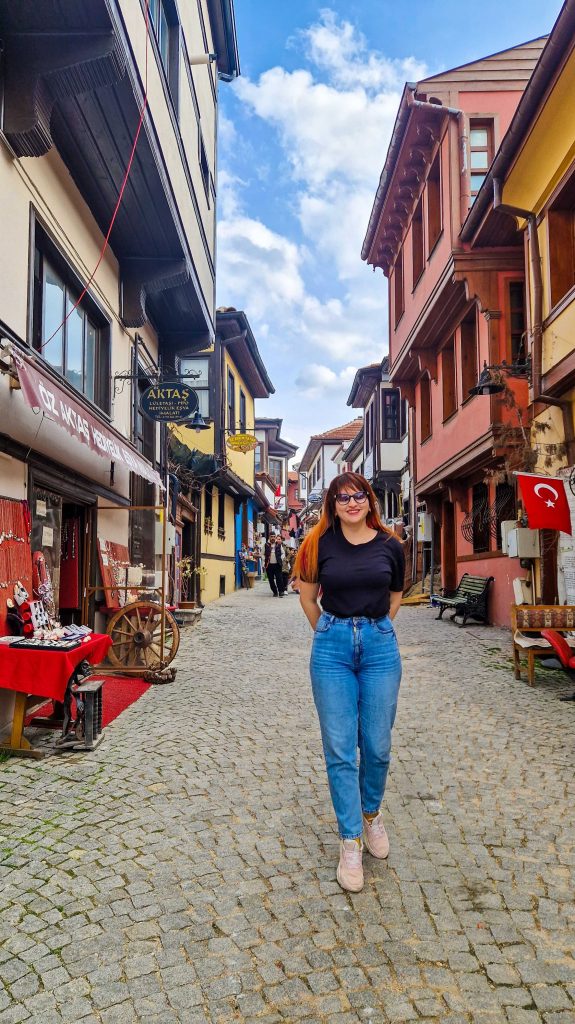Mastering Cross-Cultural Communication: Interview with Valeria Babich
Valeria Babich, our Türkiye-based HR Business Partner and Devexperts Brand Ambassador, shares her expertise in moving to another country, discovering cultural differences, and adapting to the new community as an expat. This interview will help those who want to expand their knowledge of cultural diversity.

How did you find the transition to living in a foreign country?
It isn’t my first time living abroad. I’ve had the opportunity to live in many countries worldwide, such as China, Germany, and the US. So, I was prepared for some challenges regarding legal aspects, accommodation, and adaptation to new customs around me. I was even aware of the upcoming weight gain because of famously delicious Turkish food.
Plus, Devexperts helped me on my relocation journey. Many colleagues were eager to give me the best advice about the city, tips, and suggestions I couldn’t miss.
What is the main peculiarity of the Turkish people and their communication style?
Türkiye is an amiable and welcoming country, and people here are incredibly approachable, so I made new friends quickly in Istanbul. However, their behavior and communication patterns may surprise an unprepared individual.
For example, the Turks are very straightforward in giving feedback. They will always tell if something is wrong from their point of view. However, in regular communication, they are exceptionally polite and careful, like most cultures of this region. One must delve deep into the customs to adapt to this society. Otherwise, they may unknowingly offend a local with their behavior.
Can you share a case in this regard?
Sure. For instance, when you invite a Turkish person to visit your house, and they can’t accept the invitation for some reason, they will politely decline or try to avoid giving a straight answer. However, they will hope that you will try to persuade them further by repeating the invitation several times.
This game is considered general politeness. Thus the Turks understand that you want them to be there. And, vice versa, if you’re not trying enough to convince them, you don’t really want them to go.
Sounds a bit controversial: they are straightforward, but they expect you to change their minds if they refuse to attend your house party without saying it aloud. Why so?
Any culture can represent a certain level of controversy, making each unique. According to “The Cultural Map,” an excellent study by Erin Meyer, a professor at INSEAD Business School, every culture can be evaluated by eight categories: Communication, Feedback, Thinking, Leadership, Decision-Making, Trust, Disagreement, and Time Perception. Each culture gets a specific position on each of those scales.
For example, culture can get closer to the low or high context poles on the Communication scale. The low-contextual pole means that people of this culture say what they mean and expect their vis-a-vis to take their words literally. A great example of a low-contextual country is the USA. If they say, “Sorry, I cannot come,” it means this and nothing else.
On the other hand, there are high-contextual countries. To fit in and effectively communicate there, one must know many cultural aspects, untold rules, codes of conduct, etc. Interpreting communication patterns of this culture without context is like fortune telling. Türkiye is closer to the high context pole regarding communication, so one must engage in this social game.
What’s more surprising is that a country with a high context demand can be the polar opposite on another scale. On the scale of Negative Feedback, which can be indirect and careful or direct and painfully honest, Türkiye tends to be closer to the direct one. So, we have a highly contextual culture that is straightforward when something goes wrong.
What helped you navigate these delicate issues when diving deeper into a culture so different from your own?
It was a mix of my experience living in different countries and my curiosity for the scientific explanation of cultural differences. All this helped me to move from stereotypes to my favorite affirmation: “Not better, not worse, just different.”
Can you give the top three tips to those planning to move to another country, avoid cultural shock, and blend into their new community?
- Keep an open vision and accept that you cannot transform a new culture to fit your expectations. In my case, it helped me reach my inner peace at first.
- Interact with the locals, and try to make friends. They will help you expand your knowledge about the country and give you a perspective you’ve never experienced as a tourist.
- Study and apply basic rules of conduct and find out what is considered polite in your new country. As we discussed with invitations, for some cultures, a bit of pressure is a violation of personal boundaries; for others, it’s something expected as a sign of friendliness and respect.
Having R&D centers worldwide and work-from-anywhere opportunities, Devexperts encourages employees to broaden their horizons and work in a multicultural environment. Want to be a part of our journey? Check out our vacancies and join the team!


